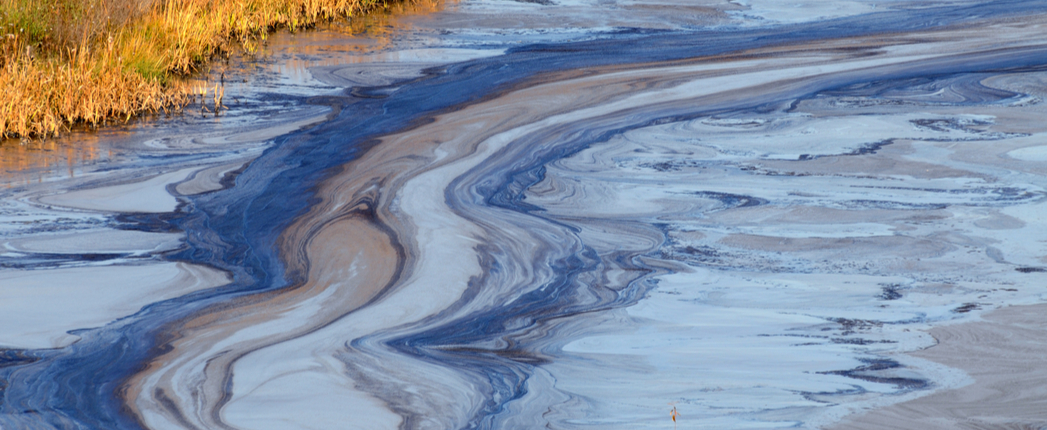
Serbia consumed 54,000 tons of finished lubricants in 2019, but the country recycles only 1.3% of that quantity back into base stocks, and it has a long way to go to meet the European Union targets for waste oil collection and rerefining, an industry event heard last week.
The country has a long way to go to meet the European Union targets for waste oil collection and rerefining, an industry event heard last week.
Serbia, which has for more than a decade been seeking membership to the European Union, has implemented most of the bloc’s laws related to environmental protection, but waste oil management should still be more closely defined, according to an official with a local lubricant supplier.
From 2004, Serbia implemented most of the laws that are related to environmental protection, impact assessments and waste management, and it does issue permits on collection and transport of hazardous waste, including waste oil, but the waste oil management should be closely defined, according to an industry pundit.
“What we need is to define the conditions for proper collecting and transporting of waste oil, conditions for proper storage and treatment as well as the quality of rerefined base oils,” Srdjan Sokolović, expert coordinator for chemicals and waste management at NIS, told GBC’s CIS Base Oils and Lubricants conference held in hybrid format – online and in person – last week in Moscow.
The Serbian oil company NIS (Naftna Industrija Srbije), is owned by Russian oil major Gazprom Neft.
Serbia is a candidate for membership in the EU and is expected to complete the negotiations process and join the bloc by 2025. Among the requirements that must be resolved are the EU targets for waste oil collection and processing.
The EU’s Directive 2008/98/EC of the European Parliament and the Council of Waste stipulates that until 2025, every member country must collect 100% of its waste oils and rerefine a minimum of 85% of the collected waste oil. Member countries that do not have processes for rerefining of waste oils must export them to member countries that have them to achieve their goal.
These recommendations are also given by GEIR, the rerefining branch of the Union of the European Lubricants Industry.
A much smaller amount – just 500 tons, or 1% of the waste stream – is rerefined into base oils.
According to estimates by Mile Stojiljković, head for quality control and development at NIS’ lubricant division, Serbia generates about 47,000 tons of used oils annually. Of these, 16,200 tons are primarily used for heating, 10,000 tons are spilled into such places as waterways, 6,500 tons are used as construction materials, 3,500 tons are incinerated and 1,000 tons are used as marine oils. A much smaller amount – just 500 tons or 1% of the total – is rerefined into base oils.
The largest licensed collector in Serbia is the German rerefiner Avista Oil. In 2018, the company opened a subsidiary for collection and storage of waste oils and exports them to its rerefinery in Dollbergen, Germany. Avista Oil in Serbia collects about 500 tons of waste oil annually and it owns a tank storage facility on a 5,000-square-meter plot of land in the town Vrcin, according to a company’s presentation.
In 2019 and 2020, the Serbian Chamber of Commerce, the Ministry of Environment Protection and Avista organized many workshops in the country to raise awareness for protection of the environment and to promote the importance of waste oil collection and rerefining as a fundamental part of that process.
Sokolović estimated that 20,000 tons of used hydraulic, motor transmission and marine waste oils in Serbia are suitable to be rerefined into base oils. He contended that the country could raise its collection rate by 45% within five years if the country adopts necessary regulations, enforces them and implements a waste management system. The Serbia Chamber of Commerce described Serbia’s current collection rate as 1.5%, which represents only those that are gathered by licensed collectors. Including oils used for heating and process oils, it is clear that much larger volumes are collected, though mostly through informal channels.
The time needed to implement the directives “should be around seven years, and the financial incentives should be higher than the ecological taxes,” he said.
Sokolović confirmed that NIS is considering a project to build a waste oil tank storage facility with capacity of 25 tons and subsequently to establish collection points.
Rafinerija Nafte Beograd, one of the oldest lubricant marketers in Serbia, part of the former ex-Yugoslavia oil and chemicals major Jugopetrol, is another licensed collector of waste oil in Serbia. The company operates a 30,000 t/y blending plant, and lube manufacturing is its main line of business. It also has a smaller waste oil rerefining unit that was active two decades ago but is dormant now, after the blending plant changed ownership several times since 2006, according to an industry source.